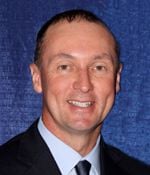by Margaret Mann, MD and Marlin Schul, MD, MBA, RVT, FACPh

 Like many of you, we receive an energy efficiency report from our electric company every few months comparing our home’s energy use against others in our neighborhood. We always are curious how we stack up against our neighbors and can’t help but feel compelled to follow their energy savings tips when our consumption goes up. There is something powerful about seeing how we perform relative to our peers.
Like many of you, we receive an energy efficiency report from our electric company every few months comparing our home’s energy use against others in our neighborhood. We always are curious how we stack up against our neighbors and can’t help but feel compelled to follow their energy savings tips when our consumption goes up. There is something powerful about seeing how we perform relative to our peers.
Improving Wisely
These benchmark tools influence us to reduce our waste by simply showing how our usage compares to the median. In a similar way, the American College of Phlebology has initiated a physician engagement project with Johns Hopkins University and the Robert Wood Johnson Foundation called Improving Wisely.
Improving Wisely is a project designed to address areas of high utilization and waste by looking at extreme variabilities in physicians’ practice patterns. The Robert Wood Johnson Foundation has established this initiative to promote safer care at lower cost. Through detailed claims-based analyses tied to a specific hospital or provider NPI number, all providers are given personalized feedback in a confidential, non-punitive way to inform and educate them regarding their respective pattern of use.
Change in behavior is then monitored over the near term, as additional queries move to expand the reach of the project. Improving Wisely offers societies the opportunity to lead in identifying benchmarks and in working to drive peer performance closer to new standards as they are identified.
Overutilization and guidance
Over the past several years, concerns have been increasing about overutilization for superficial vein procedures. Limiting the scope of practice to provider specialty, requiring arbitrary credentials, establishing a multi-societal policing entity or waiting for the carriers to act are all concepts being considered to reduce overutilization. Many of these concepts assume specific specialty training is equal to better clinical judgment yet, until recently, no specialty was rich with superficial vein work or training during residency or fellowship.
Currently, there is little guidance on the appropriateness of clinical decisions and no simple way for physicians to evaluate their clinical judgment compared to their peers.
Evaluating and improving practice patterns
Rather than questioning a physician’s judgment in a specific case, the evaluation of practice pattern variations helps to identify extreme outliers. While one might justify high energy utilization during a hot summer week, it is more difficult to defend a pattern of overutilization over months and years. Yet remarkably, surgeons can operate their entire career and never know how they perform relative to national benchmark.
The energy sector dramatically reduced electricity utilization by harnessing the power of peer comparison feedback. Handwashing compliance rate remained low despite aggressive educational efforts and only increased when individualized monitoring and data feedback was initiated.
Similarly, parallels can be made in inappropriate utilization of vein services. Replacing older windows with a new and more energy efficient option parallels the fact that nearly all superficial vein procedures are safely performed in an office-based setting without the high costs and morbidity associated with the historic hospitalbased theatre employing general anesthesia. High frequency users either have a high acuity population or may be doing the wrong things. Exposing these users to the fact they are being monitored will impact behavior.
The electricity vampires represent anything we do that is redundant and unnecessary for our patients. An example is the number of ultrasound studies being performed when a patient has NO symptoms. All costs in the system must be considered when addressing waste.
Conclusion
The use of peer comparison feedback has inspired improvement in physician behavior in antibiotic prescribing practices, colonoscopy quality, hand washing thoroughness, and number of Moh’s procedures, among others. The American College of Phlebology is a steward for advocacy in venous and lymphatic medicine and Improving Wisely is merely one opportunity to help address mutual concerns.
The agreement with the Improving Wisely project will establish benchmarks and offer peer comparison feedback in a direct and private fashion to bring awareness and guide changes in behavior for providers offering vein care. We look forward to updating the venous and lymphatic communities as developments emerge.


